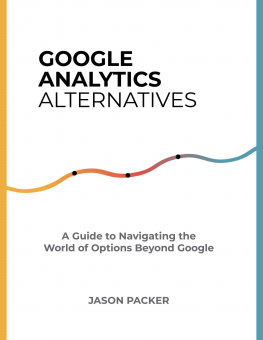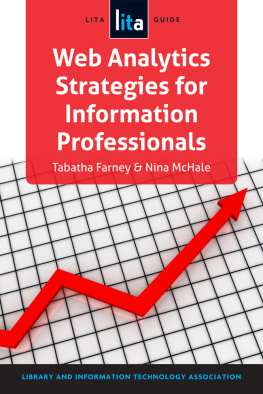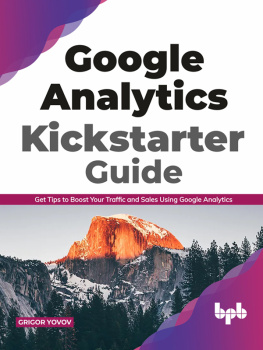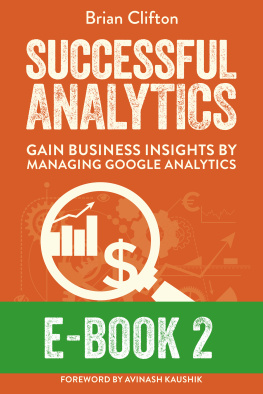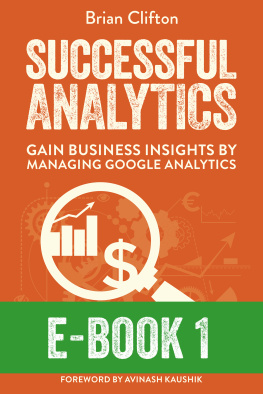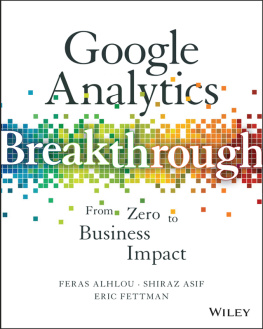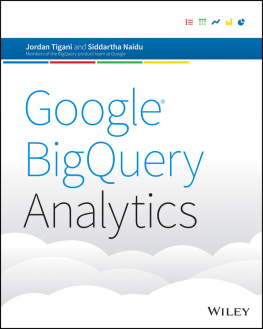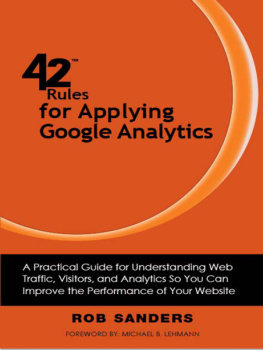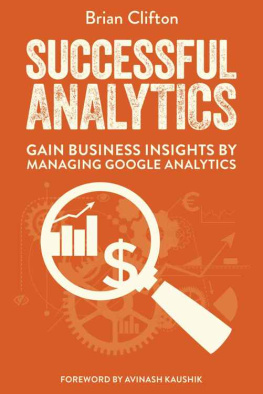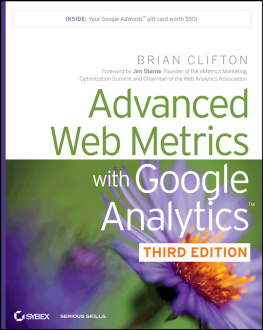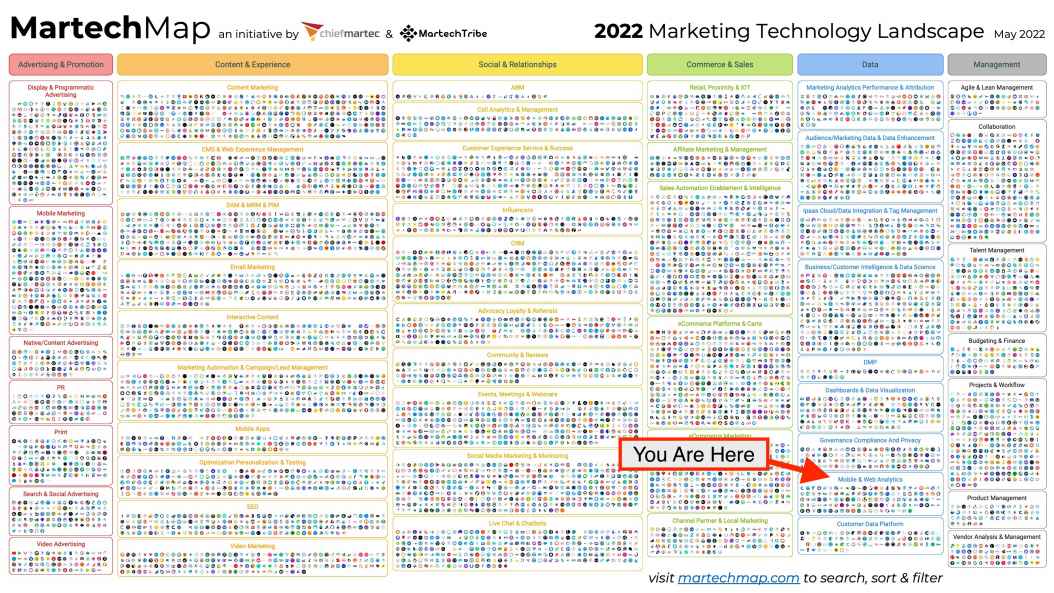Jason Packer - Google Analytics Alternatives: A Guide to Navigating the World of Options Beyond Google
Here you can read online Jason Packer - Google Analytics Alternatives: A Guide to Navigating the World of Options Beyond Google full text of the book (entire story) in english for free. Download pdf and epub, get meaning, cover and reviews about this ebook. year: 2022, publisher: Quantable LLC, genre: Politics. Description of the work, (preface) as well as reviews are available. Best literature library LitArk.com created for fans of good reading and offers a wide selection of genres:
Romance novel
Science fiction
Adventure
Detective
Science
History
Home and family
Prose
Art
Politics
Computer
Non-fiction
Religion
Business
Children
Humor
Choose a favorite category and find really read worthwhile books. Enjoy immersion in the world of imagination, feel the emotions of the characters or learn something new for yourself, make an fascinating discovery.
- Book:Google Analytics Alternatives: A Guide to Navigating the World of Options Beyond Google
- Author:
- Publisher:Quantable LLC
- Genre:
- Year:2022
- Rating:3 / 5
- Favourites:Add to favourites
- Your mark:
Google Analytics Alternatives: A Guide to Navigating the World of Options Beyond Google: summary, description and annotation
We offer to read an annotation, description, summary or preface (depends on what the author of the book "Google Analytics Alternatives: A Guide to Navigating the World of Options Beyond Google" wrote himself). If you haven't found the necessary information about the book — write in the comments, we will try to find it.
Google Analytics Alternatives is an independent evaluation of 15 of the leading analytics tools that could function as Universal Analytics replacements. The book is a learning guide, providing readers with a framework for better understanding the marketplace and tool methodologies.
Its aimed at analysts and implementors, but is informative to any web professional.
Whats Different About This Book?
Theres plenty of free lists of GA alternatives out there, why should you pay for my book?
Truly independent research.
Many existing lists of alternatives and their features are done by the vendors themselves, their affiliates, or agencies that specialize in one of the alternatives. I have no dog in this fight and give a balanced assessment of each tool. Im not selling anything other than this book.
A comprehensive, rigorous approach.
Long product lists without context make decision-making even harder. Instead of a big feature matrix, the first half of the book will help you narrow down what you need. The second part focuses on features that best distinguish each product.
Based on real-world usage.
I didnt just read someone elses list, read a vendors marketing page, or sit through a product demo. I installed all 15 options on live websites with real user traffic collecting data over multiple months to better understand each product.
Part One
The state of the industry as well as general background from a technical perspective. Some of the questions addressed:
- Should I self-host my analytics? What about open source?
- Whats the difference between product analytics and traditional web analytics?
- How do privacy and compliance issues affect my choice of tool?
Part Two
Individual product evaluations include:
Matomo Cloud, Piwik Pro, Clicky, Cloudflare Web Analytics, Statcounter, Chartbeat, Fathom, Plausible Analytics, Visitor Analytics, Google Analytics 4, Mixpanel, Snowplow, Amplitude Analytics, Heap, and PostHog.
These evaluations focus on the best use case for each product and highlights features and approaches that are most representative and unique to each.
About the Author
Jason Packer is owner and principal consultant at Quantable Analytics. He has over 20 years of experience in web analytics, and has also been a Unix systems administrator, web programmer, network engineer, and SEO specialist.
Praise of Google Analytics Alternatives from Industry Experts
This book is a must-read for anyone who ever has ever considered the question, What options do I really have besides Google Analytics? Jason Packer provides an in-depth guide to what the key considerations are for answering that question, as well as a detailed explanation of how those considerations apply to 14 different platforms eschewing the feature comparison matrix for a much, much more valuable assessment and explanation based on hands-on implementation and exploration of each platform.
Tim Wilson, Senior Director of Analytics, Search Discovery
This guide is thorough, thoughtful (and in some cases, thought-provoking), and a wonderful way to get familiar with the many tools out there. It comes at a great time, as many companies are re-evaluating their analytics tool right now. As a consultant with experience with only a few toolsets, I learned a lot about all the potential tools my clients have thought about (or not known enough to think about).
Jenn Kunz, Principal Architect, 33 Sticks
This book is a great way at viewing the web analytics ecosystem as a whole - worth every cent.
Brian Clifton, Director of Analytics, Verified Data and author of Advanced Web Metrics with Google Analytics
Jason Packer: author's other books
Who wrote Google Analytics Alternatives: A Guide to Navigating the World of Options Beyond Google? Find out the surname, the name of the author of the book and a list of all author's works by series.

